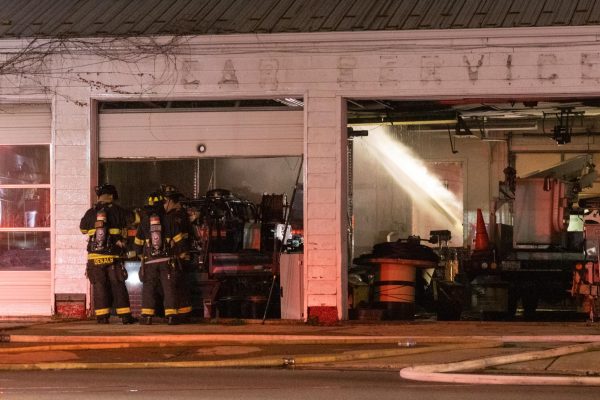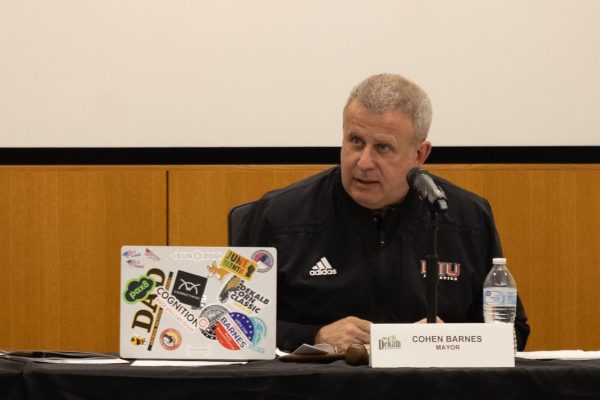Forum meeting addresses Iraqi conflict
September 6, 1990
Both Iraqi dictator Saddam Hussein and President George Bush need to be stopped in their tracks before the Middle East standoff erupts into full-scale war, according to a speaker for the NIU Marxist-Humanist Forum.
The speaker, Cyrus Noveen, spoke on the U.S. presence in the Middle-East and what it might mean to the rest of the world.
“We’re on the brink of war at this moment and so much is at stake,” was one of Noveen’s opening comments to the crowd of almost 70 people.
Noveen, an Iranian graduate student at California State University, Los Angeles, is an authority on Middle East affairs.
“The U.S. has wanted a base in Saudi Arabia ever since they had to leave Iran,” Noveen said. “They plan to be there a long time.”
Noveen was critical both of Hussein’s tactics and Bush’s response since the crisis began.
“Hussein has had an ongoing reputation for violence dating back to his involvement in the conspiracy to assassinate the Iraqi president back in 1960,” Noveen said.
“Hussein came into power through a coupe d’etat in 1968 and one year later had all of his co-revolutionaries executed,” he said.
“The U.S. has supported Iraq for the past ten years,” Noveen said, “When this crisis first began Bush said that he would not send any troops but then turned around two hours later and said that he would.”
Noveen attributed Bush’s turn-around in policy to the new U.S.-Soviet alliance. “Secretary of State James Baker happened to be in the Soviet Union at the time of the invasion and a joint condemnation of the attack was quickly released.
The presentation was followed by comments from individuals in the audience from the Middle East.
One of them corrected Noveen’s statement that the U.S. has supported Hussein. “Hussein has always been on the U.S. list of terrorists and the U.S. has never supported him,” he said.
An Iranian citizen in the audience said Hussein and other Arab leaders are using this situation to divert attention from other struggles for freedom in the Middle East.
Others seemed to support Bush’s actions.
“What would have happened if Bush didn’t send troops? A situation like this calls for a need to take an early stand in order to avoid greater damage in the long run.”
Others argued human life is more important than oil and expressed the need for an anti-war movement that “won’t give up like the anti-war movement in the 60s did.”













